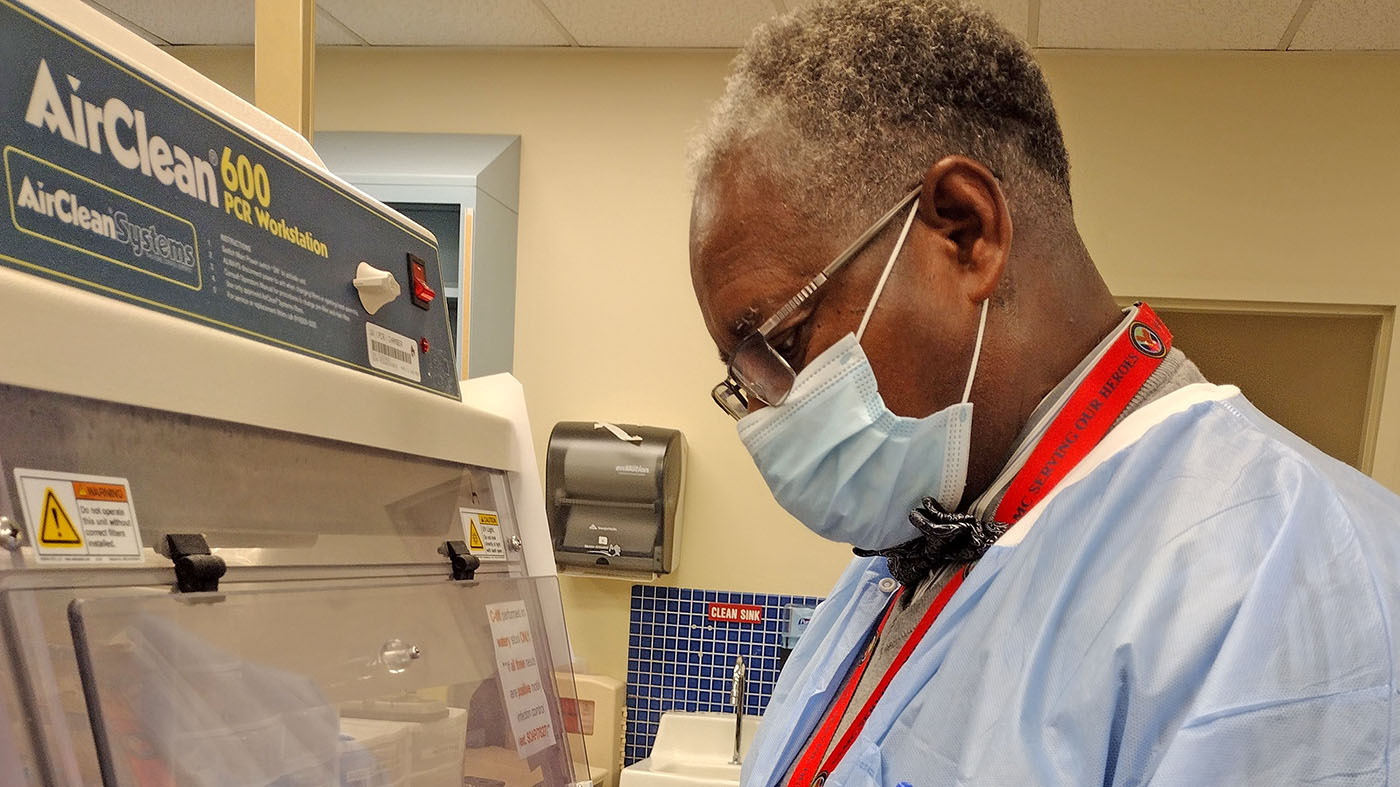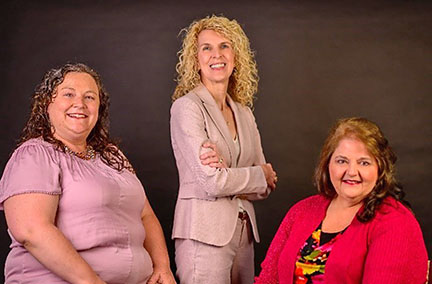Antibiotic overuse can lead to serious infections from Clostridium difficile (C. diff), a bacterium that affects the colon. Veteran patients in hospitals and long-term care facilities are more vulnerable to C. diff infections than those not receiving care in hospitals or long-term care facilities.
From 2019-2020, C. diff rates rose sharply in the Columbia VA Community Living Center (CLC). This led to increased lengths of stay and heightened Veteran patient safety risk.
In 2021, a process improvement team worked on the two-step solution to fixing the C. diff problem at Columbia VA. The process improvement innovation promotes appropriate use of antibiotics, embeds best practices at the point of care and incorporates staff education on two-step testing.
Improving on traditional methods with two-step solution
C. diff testing is typically done through polymerase chain reaction (PCR) testing, a rapid diagnostic test for infectious diseases. However, this test can result in false positives. The team recommended a key second step to improve Veteran care, which ultimately reduces C. diff rates in hospitals. This second step was adding a toxin testing for PCR positive C. diff samples.
With this second step, clinicians can identify a toxigenic or toxin producing C. diff infection and appropriately prescribe antibiotics, when needed.
“If we have somebody who is identified as not having toxigenic C. diff, then you may have a lower length of stay in the hospital. That can decrease your risk to other types of hospital acquired infections,” said the infection prevention team. They noted how the practice complies with the current recommended testing methodologies for patients.
Putting it to the test
The initial pilot results were impressive. C. diff rates were reduced by 51% in acute care and 100% in the CLC after less than a year of implementing the program. The reduction in C. diff rates resulted in estimated facility savings of $375,000.
The team entered their practice into Diffusion of Excellence’s 2022 VHA Shark Tank Competition and was selected as a winner to replicate at the Central Arkansas VA.
Spreading positive results
With Diffusion’s support, the team pitched to national VHA program office stakeholders and made significant progress to replicate at Central Arkansas VA. “It’s been a phenomenal experience,” said the infection prevention team. The success of this project through this national outlet has helped bring a focus to our facility about what process improvement projects can do and how much of an impact you can make.”
The team is excited to engage other sites in the practice, and plans to enter other innovations in future rounds of VHA Shark Tank Competition. In October, the team will share their journey at the Diffusion Summit held at VHA Innovation Experience.
To learn more about the two-step solution to fixing the C. diff problem, explore their page on Diffusion Marketplace.
Want to learn more about innovation at VA? Visit our website, scan Diffusion Marketplace, subscribe to our weekly newsletter and explore VA Pathfinder to learn more about our opportunities.
Topics in this story
Link Disclaimer
This page includes links to other websites outside our control and jurisdiction. VA is not responsible for the privacy practices or the content of non-VA Web sites. We encourage you to review the privacy policy or terms and conditions of those sites to fully understand what information is collected and how it is used.
More Stories
The Medical Foster Home program offers Veterans an alternative to nursing homes.
Watch the Under Secretary for Health and a panel of experts discuss VA Health Connect tele-emergency care.
The 2024 National Veteran Suicide Prevention Annual Report provides the foundation for VA’s suicide prevention programs and initiatives.







